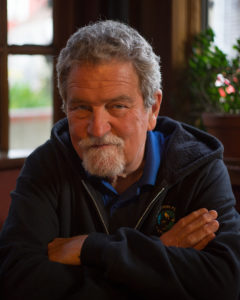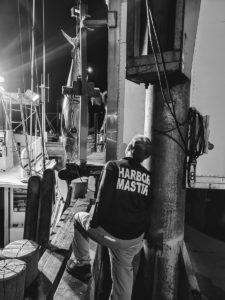 PROVINCETOWN — My late father-in-law was a wonderful man, with a simple palate, a real meat-and-potatoes kind of guy. Whenever any of his three daughters (each an accomplished and inventive cook) attempted to serve him something creative, something Asian-fusion or whatever, he would take a bite or two, look up quizzically, and ask, “What is the essence of this?” A fair question to ask about something you are about to ingest.
PROVINCETOWN — My late father-in-law was a wonderful man, with a simple palate, a real meat-and-potatoes kind of guy. Whenever any of his three daughters (each an accomplished and inventive cook) attempted to serve him something creative, something Asian-fusion or whatever, he would take a bite or two, look up quizzically, and ask, “What is the essence of this?” A fair question to ask about something you are about to ingest.
I have written about the pervasive air of happiness in Provincetown. But beyond that, what is its true essence? What is or was its real reason for being, and how does that feed into each of our connections to this town we love?

I will make a strong case for fishing.
Even the dimmest-witted or party-dulled tourist, walking out on the wharf, will spy a commercial fishing boat tied up alongside — maybe a bit rusty, piled with gear and tubs and equipment — and know that this is still a fishing town. Maybe he or she will see one or two real fishermen, mostly guys, in those tall rubber fishing boots, scruffy jeans — sometimes bloodstained or bearing a sheen of scales — and know that fishing happens here and lends its authenticity to the town.
The harbor is the center of our town and always has been. MacMillan Wharf is the epicenter now and was even more important in days gone by. What is difficult for us moderns to comprehend is that a hundred years ago Railroad Wharf was not an isolated structure projecting out beyond the neighboring shops, galleries, restaurants, and bars: it was a part of an uninterrupted mosaic of waterfront enterprises.
There were over 50 wharves at one time, from the East End to the West, some large and some small, lining the harbor. Each had sloops and ships, nets and gear, traps and other paraphernalia devoted to wresting a living from the sea back when Provincetown’s “one crop was fish,” to quote Mary Heaton Vorse’s Time and the Town, written in 1942.
Vorse wrote, “Provincetown is different from most resorts, which have been built for pleasure. Provincetown has become a resort through what it has to offer, and, underneath the summer rumpus, keeps its character, conditioned by the hard work of the sea which made it and sustains it.” She visited Martha’s Vineyard and Nantucket and observed that “they ceased more and more to live a life of their own….” Nantucket, in particular, “does not earn her living any more, and summer people, off islanders, keep her alive.… A place, like a person, which does not earn its own living, lacks moral stamina….”
She saw these examples as a lesson to be learned by Provincetown. Was the lesson learned?
Yes and no.
I visited the harbormaster’s office recently and inquired about the state of commercial fishing in town. I was surprised to learn that roughly 55 vessels are registered as “tenants” (i.e., they pay a docking fee) at the wharf. These vessels are draggers, scallopers, charter boats, and those devoted to the pursuit of lobster, tuna, and shellfish. Other vessels may also come in to offload their catches as well. The place is busy, and relatively full.
It is more difficult to ascertain where the men who work these boats come from, but perhaps half are from Provincetown, Truro, Wellfleet, and Eastham. (Here again the housing crisis raises its hoary head: people can’t afford to live near their boats.) The Provincetown Public Pier Corp.’s mission is to keep the essence of fishing alive in Provincetown, and that is no easy task — to provide and maintain the infrastructure and yet keep it affordable. It makes the place real.
Still, this ain’t the old days.
In the mid-1960s there were at least 50 or 60 draggers docked at MacMillan Wharf, so many that they had to be “rafted,” sometimes up to 10 deep. Each boat had a crew of at least five (all men, I think), and these men were all local, most of them supporting families (and our local economy). Each wharf had a fish house into which they offloaded fish, and a caravan of trucks — up to a dozen a day — could be seen heading to and from these buildings; they transported the fish directly to New York’s Fulton Fish Market and also to Baltimore and other cities.
What we have now is a fraction of that, but it is still enough to retain a tenuous hold on that essence that Vorse talked about: we are still a fishing town. Those handful of boats allow us to keep our character.
Vorse ends her book with two statements. The first is in error; the second is prescient.
“But the fishermen will still be going out and the weirs will still be bringing in their millions of pounds of fish.”
“The one certainty is that Provincetown is in history’s path as it always has been.”



